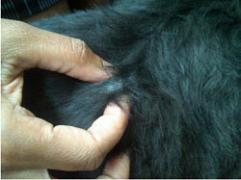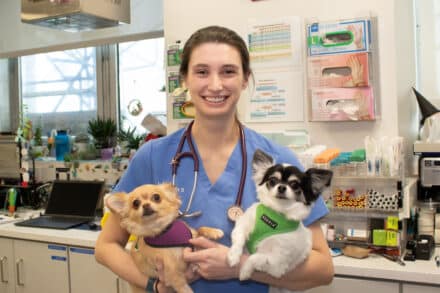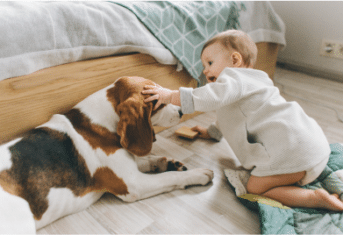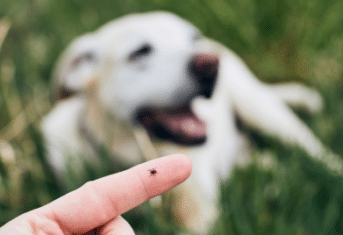Will that be One Lump or Two? A Guide to Lumps on Your Dog

Will that be One Lump or Two? A Guide to Lumps on Your Dog
My telephone and email have been ringing and pinging this week with questions about lumps on dogs.
The subject line of the first email said “Lump on Rump” which sounded like a line from an oncology book written by Dr. Seuss. When I examined the dog, I found a firm mass below the skin just to the right of the tail. Since this was a standard poodle, I suspected a sebaceous cyst, a common lump in this breed. But since you can never determine a benign or malignant lump by observation, I performed a fine needle aspiration using the same size needle I would use to administer a vaccination. Within 24 hours the laboratory confirmed my diagnosis. The worried owners were relieved, especially since no surgery was required for this benign lesion.
The second call was from an AMC colleague who has just adopted a foster dog. He’s been vaccinated, groomed and has a spiffy new collar. His owner was petting him and found a lump over his right shoulder. The combination of the recent vaccination and the location of the lump (right where he would have been vaccinated for distemper/parvovirus) made me think it was a small-localized vaccine reaction. Since this dog comes to AMC most days, we carefully measured it on the first day and again a week later and it was already getting smaller. I will continue to monitor this lump but suspect it will go away in another couple of weeks.
The third call was from a friend of mine who is a veterinarian. She had found a lump on her own dog and performed an aspiration which diagnosed a mast cell tumor.
Because these tumors sometimes require specialist level care, she wanted input from the AMC about how best to approach this tumor surgically and input from me regarding an potential chemotherapy.
If you have a lumpy dog, have each lump evaluated by your veterinarian. I keep a line drawing of a dog’s body in each dog’s medical record. On the drawing I sketch the lump, record the size based on measurements and indicate the date aspiration cytology was performed. This process makes short work of determining if this is a new lump or not.
If your veterinarian recommends aspiration cytology or a biopsy, go for it. Without additional information, it is impossible for me or any veterinarian, to give an owner bad news or good news about the lump on their dog.
Don’t hesitate to seek the opinion of a specialist. A dog with a lump in a difficult location may need a advanced imaging to define the tumor location, a specially trained surgeon to successful remove a lump or a cancer specialist to provide follow up chemotherapy.
________________________________________________________
This may also be found in the “Tales from the Pet Clinic” blog on WebMD.com.
For over a century, The Animal Medical Center has been a national leader in animal health care, known for its expertise, innovation and success in providing routine, specialty and emergency medical care for companion animals. Thanks in part to the enduring generosity of donors, The AMC is also known for its outstanding teaching, research and compassionate community funds. Please help us to continue these efforts. Send your contribution to: The Animal Medical Center, 510 East 62nd Street, New York, NY 10065. For more information, visit amcny.gbtesting.us. To make an appointment, please call 212.838.7053.
































